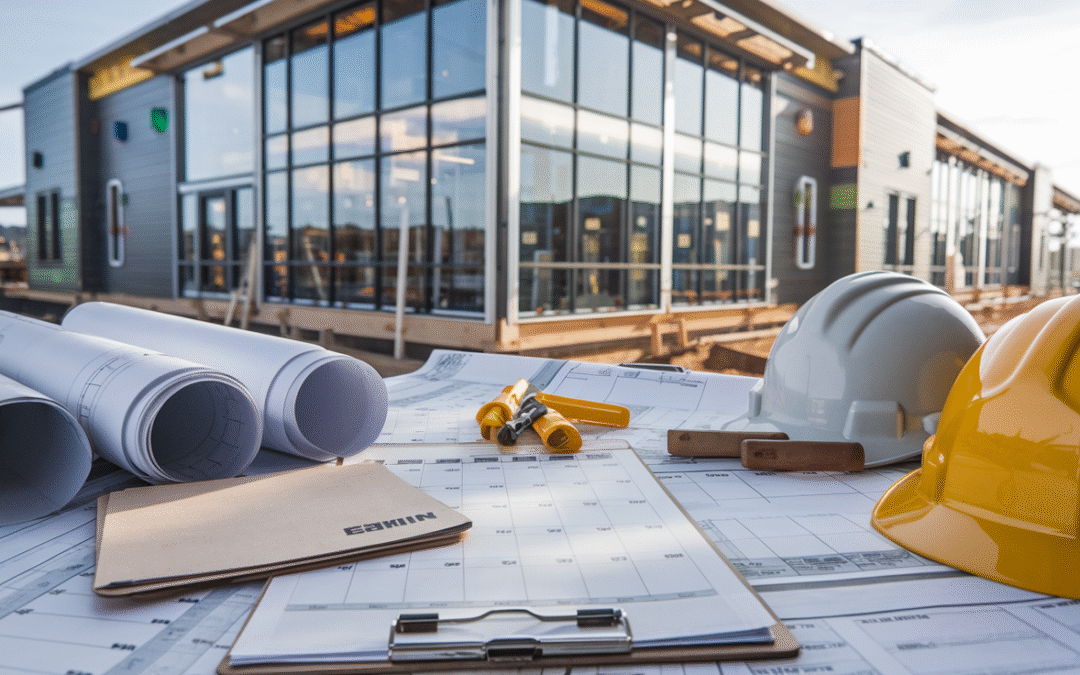Using Prefabrication in Grocery Store Construction
In the fast-paced world of retail, speed and efficiency can make the difference between thriving and merely surviving. An innovative approach that is gaining traction in grocery store construction is prefabrication. When it comes to executing complex projects like grocery stores, especially in busy areas like the Bay Area, employing prefabrication can be a game-changer. Not only does it streamline the construction process, but it also addresses budget, timeline, and quality concerns. In this blog, we’ll delve into how prefabrication can transform grocery store construction and why it should be part of your next project in San Francisco, San Mateo, San Rafael, or Burlingame.
Table of Contents
- What is Prefabrication?
- Benefits of Prefabrication in Grocery Store Construction
- Implementing Prefabrication: The iBuild Way
- Real-World Scenarios
- Conclusion
- Get Started with iBuild
What is Prefabrication?
Prefabrication involves assembling various components of a building off-site in a controlled manufacturing environment before transporting them to the final site for assembly. This contrasts with conventional building methods, where construction occurs entirely on-site, subjecting it to potential delays due to weather or unforeseen challenges. Prefabrication is not a new concept, but its application in grocery store construction offers unique advantages worth exploring.
Benefits of Prefabrication in Grocery Store Construction
Speed and Efficiency
Construction timelines can significantly impact the success of grocery store projects. By shifting part of the construction process off-site, prefabrication allows multiple stages of the project to occur simultaneously. This means your grocery store can go from concept to grand opening much faster than with traditional methods.
Controlled Quality
Off-site construction environments offer an unparalleled level of quality control. When you build components in a factory setting, you minimize the risks of errors that can occur on busy and unpredictable job sites. This controlled setting ensures that each piece integrates seamlessly on-site, maintaining both structural integrity and design intent.
Cost Savings
Unexpected expenses are a common concern in construction projects. Prefabrication helps in reducing these costs by minimizing labor time and wastage. With prefabricated methods, grocery store owners can benefit from economies of scale and more predictable financial planning—a crucial advantage in high-cost regions like the Bay Area.
Implementing Prefabrication: The iBuild Way
At iBuild Design and Construction, our architect-led model ensures that prefabrication is seamlessly integrated into our grocery store projects, allowing us hand-picked control over every phase—from feasibility studies to the last tile.
Prefabrication in Architectural Design
Our design experts consider prefabrication at the conceptual design stage, helping clients visualize modular units through advanced 3D modeling. This foresight ensures a smooth transition from factory floor to final fit-out, revealing how prefabrication blends function with aesthetics.
Feasibility and Permitting
Permits can be a snag in grocery store construction, sometimes leading to costly delays. iBuild navigates this with expert zoning and permitting feasibility, ensuring that prefabricated components approved are up to code long before they reach the site.
Construction Management Excellence
iBuild’s comprehensive construction management handles logistics, alignment with subcontractors, and on-time delivery. This streamlined process, underpinned by prefabrication, ensures the efficient and timely completion of each project, reducing overhead and waste.
Real-World Scenarios
Consider a fictional client, “FreshMart,” which came to iBuild with an eye on sustainable expansion in San Mateo. Their goal was a rapid build-out with minimal environmental impact. Through prefabrication, we cut down on job site waste by 30% and saved them six weeks in project time, allowing them to open ahead of the competition and capitalize on an unforeseen market demand.
In another project for a downtown San Francisco grocer, the prefabrication approach minimized disruptions in a densely populated area. Using prefabricated modules, iBuild’s team completed the work with minimal intervention in local traffic patterns, demonstrating our commitment to balancing client needs with community considerations.
Conclusion
Prefabrication offers compelling solutions for grocery store construction challenges, combining speed and quality with substantial cost savings. Its application demonstrates iBuild’s dedication to innovative construction methods that serve the dynamic needs of our Bay Area clientele. By choosing a firm adept in both design and construction, you position your project for success, right from the drawing board to the ribbon-cutting ceremony.
Get Started with iBuild
Ready to explore how prefabrication can enhance your grocery store project? Connect with iBuild Design and Construction to discuss your upcoming commercial ventures. Our expert team is eager to help bring your vision to life. Contact us today to schedule a consultation and take the first step toward building excellence.

